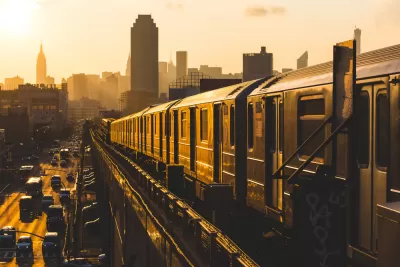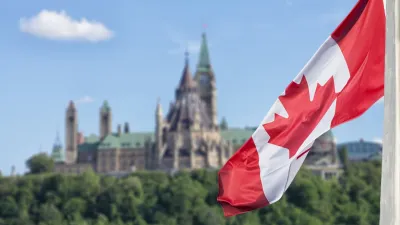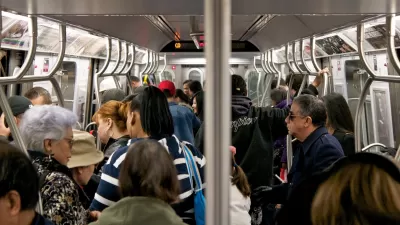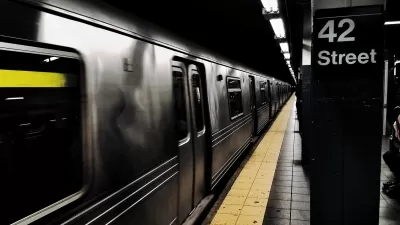The agency will lose hundreds of millions in projected congestion pricing revenue, forcing cuts to expansion plans.

As the ripple effects of the delay of New York City’s congestion pricing program become more clear, the head of the New York Metropolitan Transportation Authority (MTA) says the agency’s budget could take a hit of $800 million.
According to an article by Dan Zukowski in Smart Cities Dive, the loss could delay equipment purchases, raise maintenance costs for existing, aging equipment, and force MTA to pay thousands of employees from the operations rather than capital budget. “As part of the pause, if cash flow is required, the MTA would need to issue billion dollars of debt earlier in the financial plan than previously planned,” said MTA deputy CFO Jai Patel.
MTA CFO Kevin Willens added, “The impact of the congestion pricing pause has not yet been incorporated into the budget beyond 2024 under the assumption either that the pause will be lifted or the replacement revenue will be provided.” If the program is never implemented, the MTA’s future budget will be significantly impacted.
More on New York City’s congestion pricing program:
- Tri-State Economies to Lose Billions From Congestion Pricing Pause
- NYC Traffic Moving At Under 7 MPH, Congestion Pricing Remains Suspended
- New York MTA Upholds Pause on Congestion Pricing, Scales Back Projects
- Congestion Pricing Compromise?
- NYC Congestion Pricing Postponed Indefinitely in 'Stunning Reversal'
FULL STORY: New York transit chief paints grim picture for MTA without congestion pricing revenue

Planetizen Federal Action Tracker
A weekly monitor of how Trump’s orders and actions are impacting planners and planning in America.

Canada vs. Kamala: Whose Liberal Housing Platform Comes Out on Top?
As Canada votes for a new Prime Minister, what can America learn from the leading liberal candidate of its neighbor to the north?

USGS Water Science Centers Targeted for Closure
If their work is suspended, states could lose a valuable resource for monitoring, understanding, and managing water resources.

House Moves to Rescind California’s Emissions Standards
The state has been allowed to set its own emissions goals, including a mandate to transition to electric or zero-emissions vehicles by 2035.

Portland Proposal Would Suspend Development Fees to Spur Housing Construction
Oregon Gov. Tina Kotek and Portland Mayor Keith Wilson announced their policy plan Thursday, with the goal to jumpstart housing construction.

Honolulu Community College Celebrates Culture and Sustainability
Honolulu Community College brought together more than 320 students, staff, and community members for a day of Hawaiian cultural activities, music, and sustainability-focused learning at its annual Hoʻolauleʻa celebration.
Urban Design for Planners 1: Software Tools
This six-course series explores essential urban design concepts using open source software and equips planners with the tools they need to participate fully in the urban design process.
Planning for Universal Design
Learn the tools for implementing Universal Design in planning regulations.
New York City School Construction Authority
Village of Glen Ellyn
Central Transportation Planning Staff/Boston Region MPO
Chaddick Institute at DePaul University
Institute for Housing and Urban Development Studies (IHS)
City of Grandview
Regional Transportation Commission of Southern Nevada
Toledo-Lucas County Plan Commissions





























